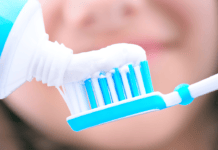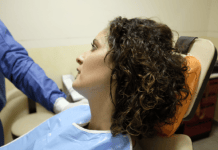Let’s face it, clinical hygiene is hard on your body, your brain, and sometimes your psyche. A patient who has some limitations and is unable to lie back or turn in the direction we need them to for proper ergonomics causes dental hygienists to bend, contort, and twist bodies in ways we should not just to accomplish our job.
Dental hygienists also have a plethora of things to remember and accomplish in a relatively short amount of time pertaining to patient care, scheduling, clinical notes, treatment plans, and so on. I think you would agree that many of us also act in the role as counselor because many dental patients just need a listening ear or someone to vent to about life and what is going on with them or their families. Some of these stories we hear are incredibly sad, and we obviously feel sympathy and are empathetic for those patients and their ordeals.
Finally, some dental patients are just a grumpy Gus or a nasty Nancy. They are unhappy, mean, and snippy without any provocation, and, naturally, that affects our own state of mind.
If you encounter any of these situations during your workday, what can you do to improve them? I have a few tips to share that I hope you find helpful.
1) Start Your Day Off the Right Way
Leave in plenty of time to avoid traffic and not be rushed as soon as you arrive at work. Be sure to have a good breakfast. As we all know, being “hangry” isn’t good for anyone. Listen to soothing or upbeat music, podcasts, talk radio, or whatever sets the tone for you to have a positive outlook on the day ahead.
2) Be Comfortable
Wearing clothes that are too snug or too loose can be irritating throughout the day. Make sure your work attire allows you to move around as needed. Find the right mask and gloves for you, and be sure that your glasses or loupes are fitting well and don’t need any adjustments. Comfy = Happy
3) Realize the Expectations for the Day
Chart audits are an excellent way to be prepared for patients who are scheduled and what they will need in regard to radiographs, charting, premed, special accommodations, etc. Surprises can always happen but try to limit them by being as prepared as possible.
4) Take Breaks
I know, I know, some of you are saying, “What is that?” Our days can be incredibly busy. But make the time to go potty, do some shoulder or neck stretches in between patients, or deep breathing for two minutes. All of these are great stress relievers.
5) Get Out of the Op
Go on a walk at lunch, eat in the park, if possible, or run a quick, easy errand. Just get away from the office and recharge. I am fortunate enough that I work near a beautiful lake and have wonderful views all around me. I cannot tell you how much that simple act of getting outdoors does to help my mood through the day.
6) Avoid Conflict (When Possible)
We are health care providers and sometimes must inform patients of things they don’t want to hear about, such as an abscessed tooth, periodontal disease, or a strange lesion that needs to be evaluated. We also remind patients that they are due for radiographs or it’s time for periodontal charting, all of which can cause conflict. But these procedures are imperative in helping to care for our patients in the best way possible.
If other things such as local gossip, politics, religion, or, recently, mask-wearing and vaccinations emerge as a topic and you know it will cause conflict due to differing opinions, avoid it or quickly divert the topic to something more neutral.
7) Keep Perfection in Check
We strive to be the best clinicians possible, but we also must keep it in check. Sometimes we are not able to attain the best possible angulation for calculus removal due to patient or tooth positioning. Even though an ultrasonic would be the best tool for the job, our patient may not be able to tolerate it due to sensitivity or the water flow. We have to do “our best” for the situation we are given and realize we have limitations too. Don’t overburden yourself with feeling like you failed if you aren’t “perfect.”
8) Be Kind
People are dealing with all kinds of things we may never know about. Be kind. Some patients will want to share with you about their grief, turmoil, sickness, or family matters. When they do, listen, be kind in your response to them, and be empathetic.
Others may just come off rude or curt. Be kind. Just because they didn’t share doesn’t mean that there isn’t something devastating in their personal lives. A quote from Leo Tolstoy is, “Nothing can make our life, or the lives of other people, more beautiful than perpetual kindness.”
9) Get a Good Night’s Rest
Some people do not require as much sleep as others, but whatever is right for your body, do it! Maybe that means missing that favorite show so you can get in bed earlier. Record it and watch it later! Making good sleep habits is so important. Getting good restful sleep is essential to being able to be at your best and perform your work duties.
10) Remember Why
We all chose this profession for a reason, and you need to take a moment and remember why you did. Hopefully, it was the patient care aspect, but the benefits include being able to work part-time and be with your family more. Maybe it enabled you to afford a home that you take pride in. Maybe you love the instant gratification that scaling and debridement provide.
Keeping your focus on the “why” of what you do will help you to better achieve the results you want throughout the day with all those you encounter.
Before you leave, check out the Today’s RDH self-study CE courses. All courses are peer-reviewed and non-sponsored to focus solely on high-quality education. Click here now.











